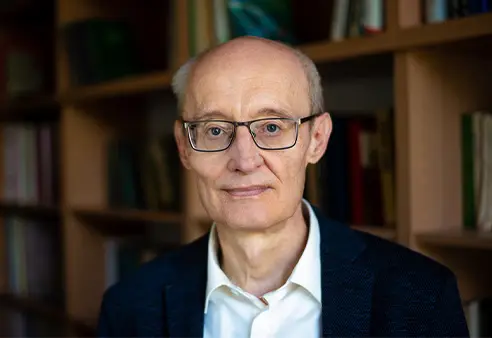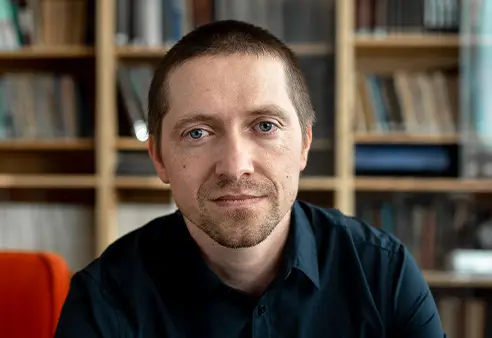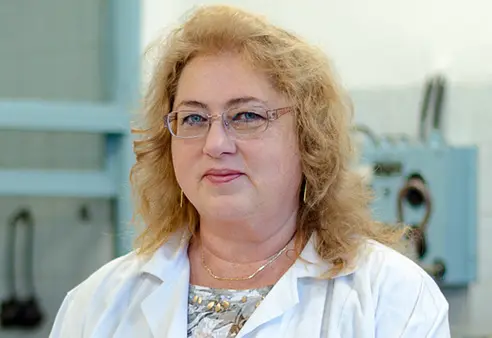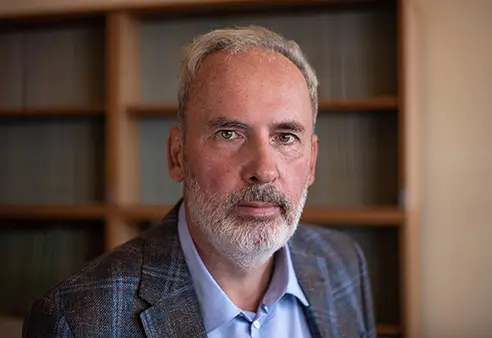Virus research is not only important during pandemics. A Slovak Virologist, Dr.rer.nat Boris Klempa, D.Sc. from the Department of Virus Ecology of the Institute of Virology of the Biomedical Research Centre of the Slovak Academy of Sciences, has made a significant contribution in this area. He received the International Joel M. Dalrymple Memorial Lectureship Award 2019 for his innovative achievements in the biomolecular medicine of hantaviruses.
The general public associates the name of the scientist Boris Klempa mainly with the development of the Slovak PCR tests for detection of the SARS-CoV-2 virus. "We eagerly went into this project, as it helped solve our daily troubles and at the same time had a great social benefit. Thanks to it, a completely new dimension of research has opened up for me - applied research. Before, I focused only on basic research, but this project has proven that the application of knowledge in practice with benefits to society may well be my specialty." says Boris Klempa. The development of tests continues today, Boris Klempa's team focuses mainly on clinical validation in cooperation with MultiplexDX.
Before the pandemic, Boris Klempa focused mainly on research by arthropod-borne viruses, including the major tick-borne encephalitis virus, present in our country, as well. He was part of the international project ANTIDotE, in which he participated in the analysis of gene regulation of ticks. "We wanted to find out what specific tick proteins are produced in the saliva of the infected ticks while sucking, with some of them potentially being suitable candidates for vaccine development. We managed to identify several such genes, and in an experimental model we were able to reduce tick-to-mouse transmission of the virus.”
Since his doctoral days, he has been involved in studying hantaviruses, which are transmitted by rodents, causing serious, even fatal diseases. There are several dozen cases a year in Slovakia. "We have characterized which specific hantaviruses occur in Central Europe and what the most important transmitters are. We also participated in the discovery of the very first hantaviruses in Africa. In this time, we already know that hantaviruses are not transmitted by rodents only, but also by various other insectivores, such as moles and bats."
Boris Klempa says that his most important project is a series of projects within the European Virus Archive, which today goes by the name of EVA-GLOBAL. Its purpose was to create an archive of detailed viruses that will be easily available to scientists. This project has played a major role in all recent epidemics, be it the swine flu, MERS, Zika, Ebola or the current Covid-19, where we have made our isolates from Slovakia available to the entire world. "I am very proud to be part of it, as I am convinced that this project is changing the world. It has fundamentally changed the virologic map of the world, and increased the availability of viruses for research," said Boris Klempa.
In the future, he would like to continue working on viruses transmitted from animals to humans, such as the West Nile virus, a mosquito-borne virus. Apart from that, he would like to continue his research of hantaviruses, which remain his main focus.
A key period that made an impact on his entire career was studying at the Charité University Clinic in Berlin. "Thanks to this study, I established a large number of contacts and collaborations all over the world. I have had the opportunity to participate in a number of international projects, including the aforementioned research on hantaviruses in Africa. One of the most important people who fundamentally influenced my scientific career was the head of my doctoral thesis, Professor Detlev H. Krüger, whose support I still have."
What Boris Klempa is fascinated by in virology, is its diversity. "Thanks to it, I have experienced rodent catching in Africa, long hours in BSL3 laboratories, thousands and thousands of PCR tests, the magic of computer analysing of new virus sequencing, as well as invitations to lectures in Buenos Aires and Wuhan, China. There will always be something to discover in it. I feel privileged that I can devote myself to it."
In his free time, Boris Klempa likes to relax with his family. He is also interested in fish keeping, and in recent years has become an avid runner.



